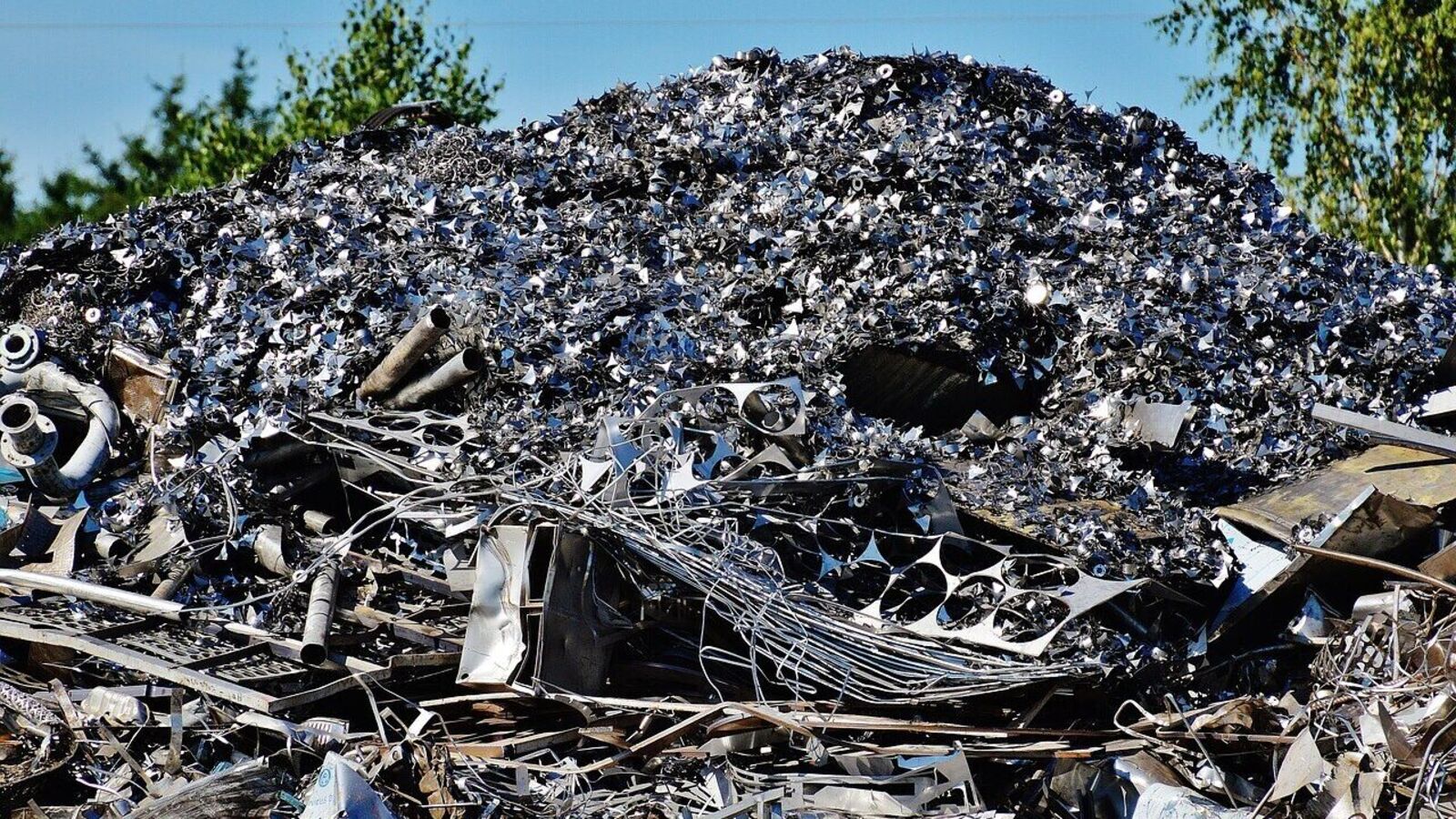As the world increasingly prioritizes sustainability, the metal recycling industry exemplifies how economic growth can harmoniously coexist with environmental stewardship. With the transition to a circular economy, investing in leading metal recycling stocks not only contributes to ecological well-being but also offers investors access to a rapidly growing market with immense potential.
Key Players in the Metal Recycling Sector
Gravita India
Gravita India stands tall as one of the country’s foremost lead producers and a significant player in the metal recycling space. The company specializes in manufacturing lead, zinc, and copper alloys while recently diversifying into plastic recycling, aligning with various industrial requirements.
In the first quarter of FY25, Gravita India showcased impressive financial results, achieving a remarkable 29.1% year-on-year revenue increase. This growth was underpinned by substantial gains in its lead and plastic recycling segments. Additionally, operating profit surged by 50.2%, with net profit rising by 29.3%. Key factors contributing to these results include improved profitability in the aluminium sector, driven by rising London Metal Exchange (LME) prices.
Focused on future growth, Gravita is making substantial investments in innovative recycling initiatives, including lithium-ion battery and tyre recycling. Its strategic expansion into rubber, paper, and steel recycling reflects a strong intent to diversify revenue streams and mitigate reliance on conventional materials.
With an extensive procurement network of over 1,500 touchpoints across 38 countries, Gravita India benefits from a competitive advantage. The company has consistently delivered strong performance, driven by increasing demand and planned capacity expansions.
Nile Ltd
Nile Ltd, established in 1984, specializes in the production of pure lead primarily for battery purposes. The company is a prominent secondary producer of lead and lead alloys, catering to the needs of manufacturers in various sectors, including lead-acid batteries, PVC stabilizers, and lead oxide.
In the June 2024 quarter, Nile Ltd reported strong financial outcomes, with consolidated revenues soaring by 52.2% to ₹2.4 billion. The EBITDA witnessed a significant increase of 70.7%, reaching ₹133 million, while EBITDA margins improved from 4.7% to 5.3%. The net profit for Q1 FY25 was recorded at ₹90 million, with margins climbing from 25.8% to 27.2%.
Nile operates two lead recycling facilities, with capacities of 32,000 TPA in Choutuppal and 75,000 TPA in Tirupati. The company has also established two wholly-owned subsidiaries: NLCPL, focusing on lithium-ion battery recycling, and NEPL, aimed at serving the nutraceutical and cosmetic industries through natural extracts.
Despite a high client concentration—nearly 91% of sales coming from Amara Raja Batteries—Nile’s management remains optimistic about future growth, planning to invest ₹600 million in NLCPL by FY26 with expected increases in both revenue and profit margins.
Pondy Oxides & Chemicals
Pondy Oxides & Chemicals has established itself as India’s leading nonferrous recycling company and the largest producer of secondary lead metal. The company specializes in recycling lead-acid batteries and various scrap materials, including copper, zinc, and plastic, converting them into secondary lead metal which is then refined.
Pondy Oxides exports 60% of its products to over 20 countries, serving diverse sectors like electronics, chemicals, and pharmaceuticals. With three decades of industry experience and long-term contracts with major original equipment manufacturers (OEMs), the company boasts a significant competitive edge. It also benefits from a diversified supplier network with over 270 suppliers across 90 countries.
In Q1 FY25, Pondy Oxides reported a strong performance, with revenues increasing by 37% year-on-year due to enhanced production and sales. This growth resulted in a 76% rise in EBITDA, with margins improving from 4% to 5%. Notably, net profit surged by 216%, driven by operational efficiency gains and reduced finance costs.
The company’s dedication to cost-effectiveness and energy efficiency through recycling offers manufacturers a sustainable alternative to traditional mining. Moving forward, Pondy Oxides plans to explore new verticals in lithium-ion and e-waste recycling as well as expansions into plastics and rubber. A new facility under construction in Thervoykandigai, Tamil Nadu, aims to enhance lead capacity from 132,000 MTPA to 204,000 MTPA, showing the company’s commitment to growth.
Eco Recycling
Eco Recycling (Ecoreco) is a leader in India’s e-waste management sector, providing comprehensive solutions that encompass reverse logistics, data destruction, IT Asset Disposition (ITAD), and precious metal recovery. The company caters to a diverse clientele, including multinational corporations and government entities.
Ecoreco’s financial results for June 2024 reflect strong performance, with total revenue jumping by 69.5% to ₹134 million. EBITDA saw a rise of 76.4% to ₹102 million, and the EBITDA margin improved significantly to 76.1%. The consolidated PAT increased by 73%, reaching ₹82 million, boosting PAT margins to 60.6%.
The management team remains focused on future growth targets, aiming for significant revenue milestones in FY25. This strategy emphasizes high-margin services while adhering to regulatory compliance, positioning Eco Recycling as a front-runner in the e-waste management industry as awareness and policies surrounding e-waste continue to evolve.
Conclusion
The metal recycling industry presents immense opportunities for growth and innovation, reflecting a transformative shift towards sustainability. Nevertheless, challenges such as market volatility, regulatory shifts, and fierce competition pose hurdles for companies vying for leadership in this sector. Successful navigation of the transition to a circular economy requires a steadfast commitment to adaptability and sustainability.
For potential investors, diligent research and awareness of ongoing industry trends are essential. By understanding the landscape and associated risks, investors can better align their financial objectives with a sustainable, eco-friendly future.
Happy Investing!
Disclaimer: This article is for informational purposes only. It does not constitute a stock recommendation and should not be construed as such.












